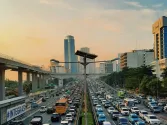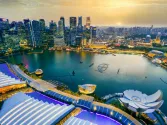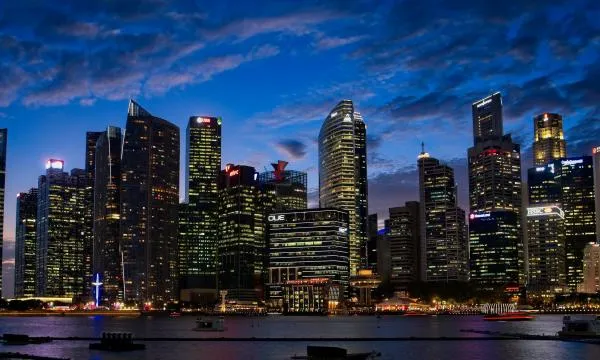
Urban aquaculture a rising star in Singapore industrial
An 8-storey vertical fish farm will be fully operational by 2023.
According to the Ministry of Trade and Industry (MTI), Singapore’s economy contracted by 2.4% year-on-year (y-o-y) in Q4 2020, bringing the total change in the overall economic growth in 2020 to a negative 5.4%. In a COVID-19 year, Knight Frank says the resilient manufacturing sector played a huge role in cushioning the fallout on the economy, with substantial output expansions in the electronics, biomedical manufacturing and precision engineering clusters.
Demand for electronics remains high due to the current global chip shortage. And with Singapore as a major manufacturer of semiconductors, chipmakers in the industrial sector may be compelled to expand existing facilities in order to increase output production.
In March 2021, the Singapore Purchasing Manager’s Index (PMI) reported an expansion of 50.8, the highest since March 2019. The optimism among manufacturers prevailed in January and February where the PMI expanded by 50.7 and 50.5 respectively, indicating that the industrial sector is likely to see continued growth in 2021.
Here’s more from Knight Frank:
In the first quarter of the year, the island-wide median rent of multiple-user factory space remained unchanged from the previous quarter at S$1.73 per square foot per month (psf pm). Despite the slight contractions in Q2 and Q3 2020, the island-wide median rent has since stabilised with the pick up in activity and improved sentiment. Accordingly, there was a total of 1,564 rental transactions in January and February, indicating an uptick of 27.9% from 1,223 transactions in the same period last year, and a slight increase of 0.1% from 1,562 in October and November 2020.
The multiple-user factory segment reported a healthy stream of transactions totalling some S$324.6 million, led by the sale of the Sime Darby Business Centre for S$102.0 million in January 2021. As such, prices remained stable, averaging about S$402 psf as the existing supply of investment grade multiple-user factory space is limited.
Urban aquaculture on the rise
In line with Singapore’s goal to be a self-sufficient city by 2030 through the strengthening of the local food system, aquaculture has risen as a sustainable approach for fish-farming systems in industrial facilities. With the Government’s 30x30 Express grant together with the new S$60 million Agri-Food Cluster Transformation (ACT) Fund set aside in the recent Budget 2021, these will help local farms to ramp up their productivity and facilities.
Apollo Aquaculture Group, a homegrown fish farming company, is set to have one of the largest vertical fish farms in Singapore. Envisaged to be fully-operational by 2023, the first phase of operations started in February 2021 on the first three floors of the eight-storey development in Lim Chu Kang. This is expected to churn out up to 1,000 tonnes of fish a year. By 2023, the total output capacity would be 2,700 tonnes a year.
Market outlook
Emerging as the main driver of national growth in a pandemic-stricken year, the manufacturing sector is in pole position to lead the expected economic recovery in 2021. This will be supported by the electronics cluster given the heightened demand for 5G technologies as well as the production of electronic goods that has been affected by the global chip shortage. Additionally, the transport engineering cluster might turn a corner with controlled travel envisaged to rise with the implementation of bilateral travel corridors with low to moderate infection rate countries, most likely in the second half of 2021.
Moving forward, about 56.1 million sq ft gross floor area (GFA) of new industrial space is forecasted to be completed between 2021 to 2024. Of these, about 51.3% of the new supply is projected to be completed in 2021, with single-user and multiple-user factory space forming a significant proportion. While this might put pressure on the rents of factory space, more firms may expand their headcounts and the size of their facilities to cater for increased output production in light of anticipated economic recovery. Factory space rents might increase marginally in 2021, between 1% and 3%.
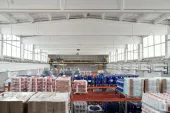
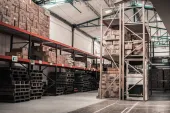

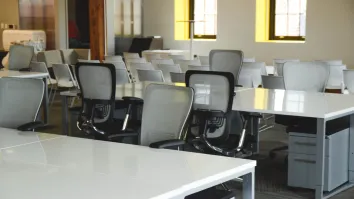
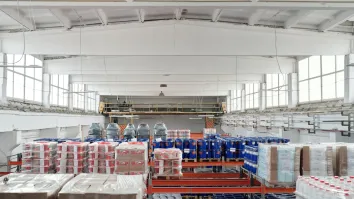
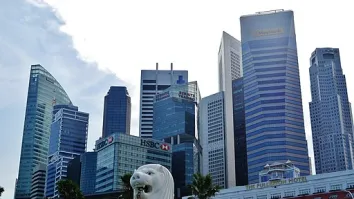













 Advertise
Advertise
